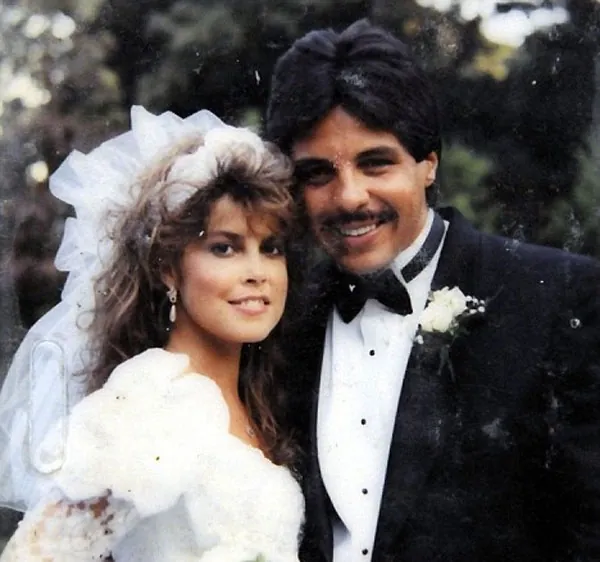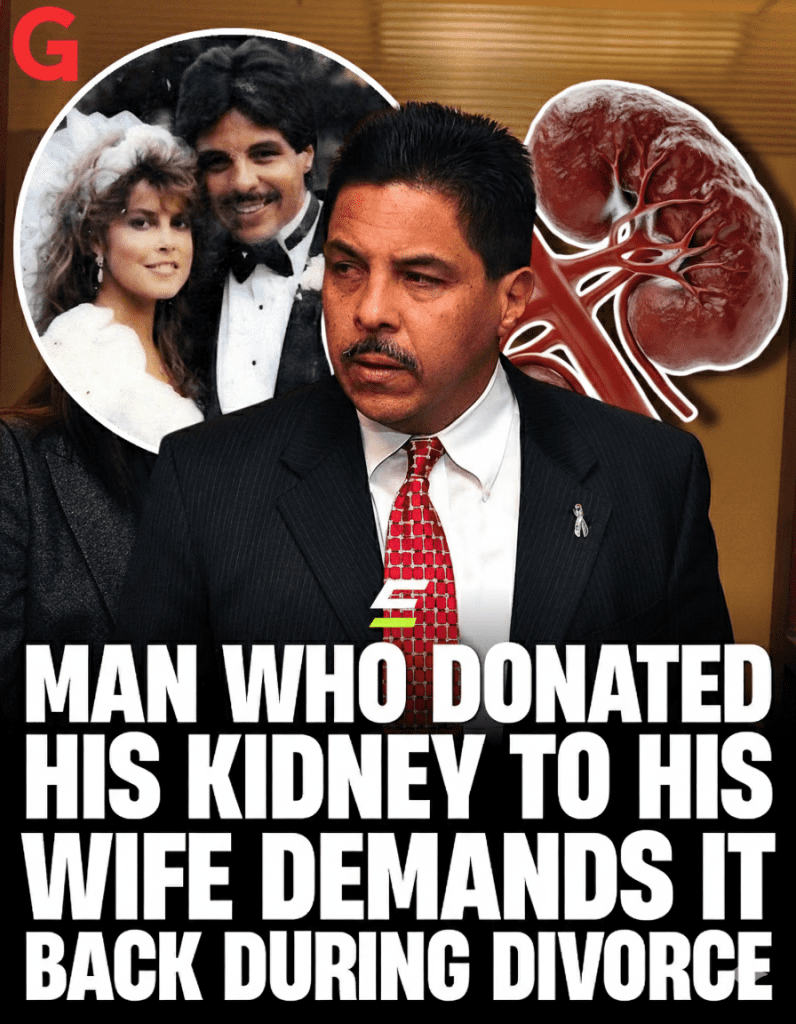The Strange Case of Richard Batista, the Surgeon Who Donated His Kidney to His Wife and Then Asked for It Back
Love stories often start with big promises—devotion, sacrifice, and a vow to stand by one another through the hardest times. But sometimes, those promises unravel in ways that no one could ever imagine. One of the most surreal tales of love, sacrifice, and heartbreak took place in Long Island, New York, in the early 2000s. It involved a husband, a wife, a life-saving kidney donation, and a divorce battle that left the world stunned. At the center of this strange and deeply emotional case was Richard Batista, a surgeon who gave his wife Dawnell the ultimate gift of love: one of his kidneys. Years later, when their marriage fell apart, he wanted it back—or at least a price tag of $1.5 million.
In 2001, Dawnell Batista was in a fight for her life. She had already endured two failed kidney transplants, and her body was weakening under the strain of dialysis. Life as she knew it was slipping away. For her husband, Richard, there was no hesitation. He stepped forward not just as a doctor, but as a partner, determined to give her a second chance at life. Against all odds, he donated one of his kidneys. For most couples, such an act would stand as a storybook example of love and sacrifice. At the time, it seemed like the moment that would bind them together forever.

The surgery was a success. Dawnell recovered, and Richard carried on with the knowledge that his body had literally become a part of hers. But marriage is not saved by one act, no matter how extraordinary. Beneath the surface, tensions lingered. The couple’s relationship, already strained by years of medical challenges and emotional exhaustion, began to crumble. By 2005, Dawnell had filed for divorce, and the courtroom became the stage for one of the most unusual battles in American legal history.
It was then that Richard shocked not just Dawnell, but the entire world. Standing before the court, he demanded that his kidney be returned. If that was impossible, he insisted that she compensate him with $1.5 million for the organ he had given. His reasoning, at least from his perspective, was simple: he had made the ultimate sacrifice for her, and now she was leaving him behind. To him, that felt like a betrayal so deep that it demanded more than a clean break. He wanted fairness, or at least some acknowledgment that what he had given wasn’t just another gift—it was a piece of himself.
The courtroom, however, was unmoved. The law in the United States is very clear when it comes to organ donations. Once transplanted, an organ becomes the property of the recipient. It cannot be reclaimed, resold, or bargained for. Medical ethicists were quick to remind the public that trading organs for money is not only illegal but morally unacceptable. Richard’s request was therefore denied, and his kidney remained with Dawnell. His claim, while emotionally charged, had no legal ground to stand on.

The media latched onto the story instantly. Headlines blared with the absurdity of it all: a man asking for his kidney back during a divorce. It was the kind of tale that made people stop and shake their heads in disbelief. Some felt sympathy for Richard, arguing that he had every right to feel hurt and bitter. After all, he had given up a part of himself only to see the marriage collapse. Others saw his demand as cruel and vindictive, reducing a profound act of love into a bargaining chip.
What made the story so fascinating was not just the legal and medical impossibility of Richard’s claim, but the very human emotions behind it. Divorce is already one of the most painful experiences a couple can endure. Add the weight of such a monumental sacrifice, and the heartbreak only deepens. Richard’s attempt to reclaim his kidney—or to assign it a dollar value—was perhaps less about the organ itself and more about the profound sense of betrayal he felt. When we give someone so much of ourselves, it’s human to want something in return, especially when that relationship ends in bitterness.
Yet, in the cold world of law and medicine, feelings don’t always matter. Dawnell kept the kidney. The marriage was dissolved. And Richard’s story went down as one of the strangest divorce cases in modern memory. It raised questions that still linger today: How much do we owe the people we sacrifice for? Is a gift truly unconditional, even when it’s something as extraordinary as an organ? And how do we navigate the line between love, duty, and resentment when relationships fall apart?

The case also became a touchstone for ethicists, legal scholars, and even comedians. Some pointed to it as an example of why emotional wounds should never dictate legal decisions. Others used it as a cautionary tale about the risks of intertwining life-saving medical gifts with the unpredictable terrain of marriage. For the public, it was a mix of fascination, sympathy, and dark humor. But for Richard and Dawnell, it was raw, painful reality.
Looking back now, more than twenty years later, the Batista case is remembered less for the courtroom outcome and more for the lessons it offers. It’s a reminder that even the most selfless acts can become entangled in human emotions. Sacrifice, no matter how profound, doesn’t always guarantee loyalty or love. And when relationships collapse, even extraordinary gifts like a kidney can’t glue them back together.
At its heart, this story is about the complexity of love. Richard Batista’s gift was real, his sacrifice undeniable. Dawnell’s recovery was made possible by his act of generosity. But love is not a ledger, and sacrifice does not come with a receipt. The kidney, once given, belonged to her. The love, once shared, belonged to them both. And when the marriage ended, all that remained was a strange, unforgettable story about how far one man was willing to go to hold on to what he felt was lost.



